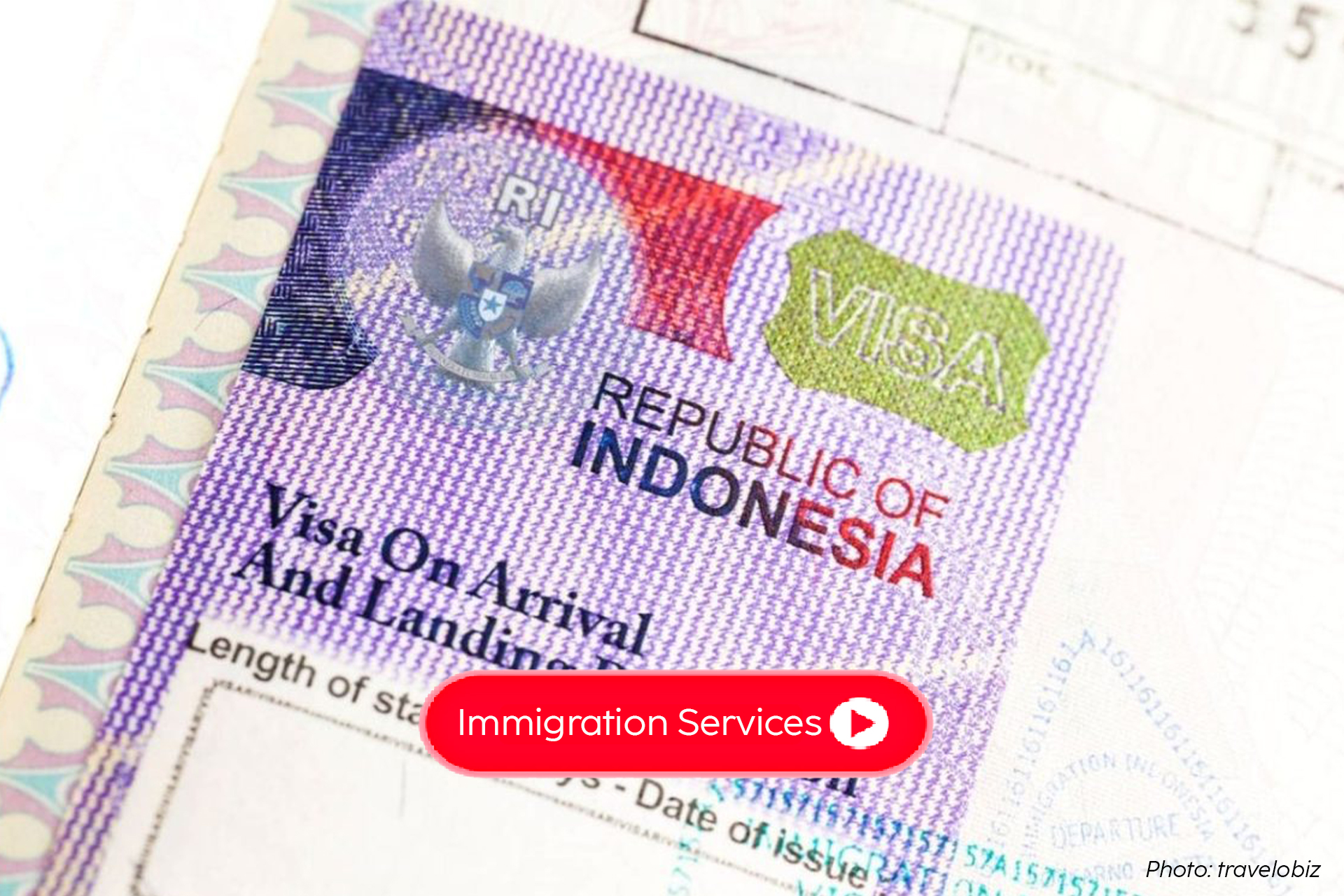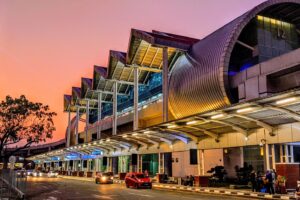In a move to facilitate foreign tourists, the Directorate General of Immigration introduces Visa Kunjungan Saat Kedatangan (VKSK), commonly known as Visa on Arrival (VoA). The government has also embraced digitalization with the introduction of e-VOA, making the visa application process more accessible for tourists arriving in Indonesia.
For anyone planning an international trip, obtaining a visa is often a crucial step, especially when the destination country doesn’t exempt visas for the traveler. Indonesia offers a straightforward solution for foreign nationals with its Visa on Arrival (VoA), allowing them to apply for entry permits upon arriving at Indonesian airports.
For foreign nationals planning a temporary stay in Indonesia or just a layover before continuing to another country, a visa is necessary to enter the country. One of the most commonly chosen visas is Visa on Arrival, or VoA.
Understanding Visa on Arrival (VOA) in Indonesia
Frequent travelers are likely familiar with the term Visa on Arrival (VOA) in Indonesia. However, for those unfamiliar, VoA, abbreviated from Visa on Arrival, is a temporary entry permit granted by the Indonesian government to foreign citizens.
Visa On Arrival Indonesia is granted to Foreign Nationals from countries, special administrative regions of a country, and certain entities exempted from Visa Kunjungan Saat Kedatangan Khusus Wisata based on regulations to stay in Indonesian territory.
Unlike other types of visas that involve complex bureaucratic processes, VoA offers simplicity. Foreign nationals entering Indonesia can directly apply for VoA upon arrival at their destination airport. Naturally, they must bring the necessary documents.
VoA can be used for various purposes, including social visits, business trips, or leisure. VoA extension is also straightforward, especially with the introduction of e-VoA, allowing foreign nationals to apply for VoA and extensions more conveniently.
VoA holders are allowed to stay in Indonesia for 30 days. However, for foreign tourists wishing to stay longer, an extension of 30 days can be requested at the immigration office where the tourist is located.
Requirements and Application for VOA
Foreign nationals seeking VoA are now facilitated by the e-VoA service. E-VoA is a single-entry electronic visa for various purposes for foreign citizens entering the Indonesian territory. With e-VoA, these foreign nationals can stay in Indonesia for a maximum of 30 days. If their needs in Indonesia exceed 30 days, an extension of up to 1 time can be requested.
The online application for Visa on Arrival can be made through the official website molina.imigrasi.go.id. Before filling out the form, ensure that all required document requirements are complete, including:
- Complete applicant biodata with a valid passport
- Passport-sized photo in JPG/JPEG/PNG format
- Email address
- Active MasterCard, Visa, or JCB credit card
Once all requirements are met, follow these steps for e-VoA application:
- Use a browser on your laptop or a browser application on your mobile device and visit the molina.imigrasi.go.id website.
- Proceed by filling out the available form with the required data. Ensure that the provided personal information is accurate.
- After confirming all information is correct, proceed to the payment stage.
- Fill in the payment form details and make the payment by following the provided instructions.
- Wait for the verification process.
- The e-VoA will be sent directly to the registered email address.
- Download and print the e-VoA before your departure to Indonesia.
- Officers will scan the QR code on the e-VoA, and after the verification process is completed, the e-VoA sticker will be affixed to the passport.
VoA Holders Can Stay Longer in Indonesia
Foreign nationals holding Visa On Arrival can stay longer in Indonesia by extending their stay at the nearest immigration office. This information was shared by the Director of Immigration Stay Permits, Yunidar Pramella Pasaribu, during the inspection of the G20 Immigration Checkpoint at Ngurah Rai International Airport on Tuesday (15/11/2022), as quoted from imigrasi.go.id.
Pramella explained that foreign nationals can extend their stay for a total of 60 days, with the condition that they apply for a stay extension at the immigration office where they are located. Extensions must be applied for before the end of their current stay.
“VOA holders are allowed to stay in Indonesia for 30 days and can extend their stay for an additional 30 days by extending their stay permit. For this extension, a fee of five hundred thousand rupiahs is charged,” explained Pramella.
To meet the requirements for stay extension, foreign nationals must visit the nearest immigration office, attaching a stay extension request letter, a form provided by the immigration office, the original passport and VOA proof, and return tickets. After ensuring that all documents are complete, applicants will be given a billing code for payment at the bank.
After making the payment, applicants will undergo a photo and fingerprint process. Once the stay extension process is completed, applicants can retrieve their passports. Pramella advises applicants to apply for an extension a few days before their current stay expires to avoid the overstay penalty of Rp 1,000,000 per day.
“We recommend applying for an extension 5 or 7 days before the current stay expires,” she said.
Visa on Arrival in Indonesia is not just an immigration policy; it is a strategic step in promoting the tourism sector, especially with the introduction of e-VoA. By continuously updating and perfecting this system, Indonesia demonstrates its commitment to becoming a preferred destination for travelers worldwide. Through VoA, Indonesia opens its doors wide, inviting the world to enjoy the wonders of its nature and cultural diversity.
Source: Compiled from various sources and websites, including government web.





 20% off today. Whatsapp us!
20% off today. Whatsapp us!